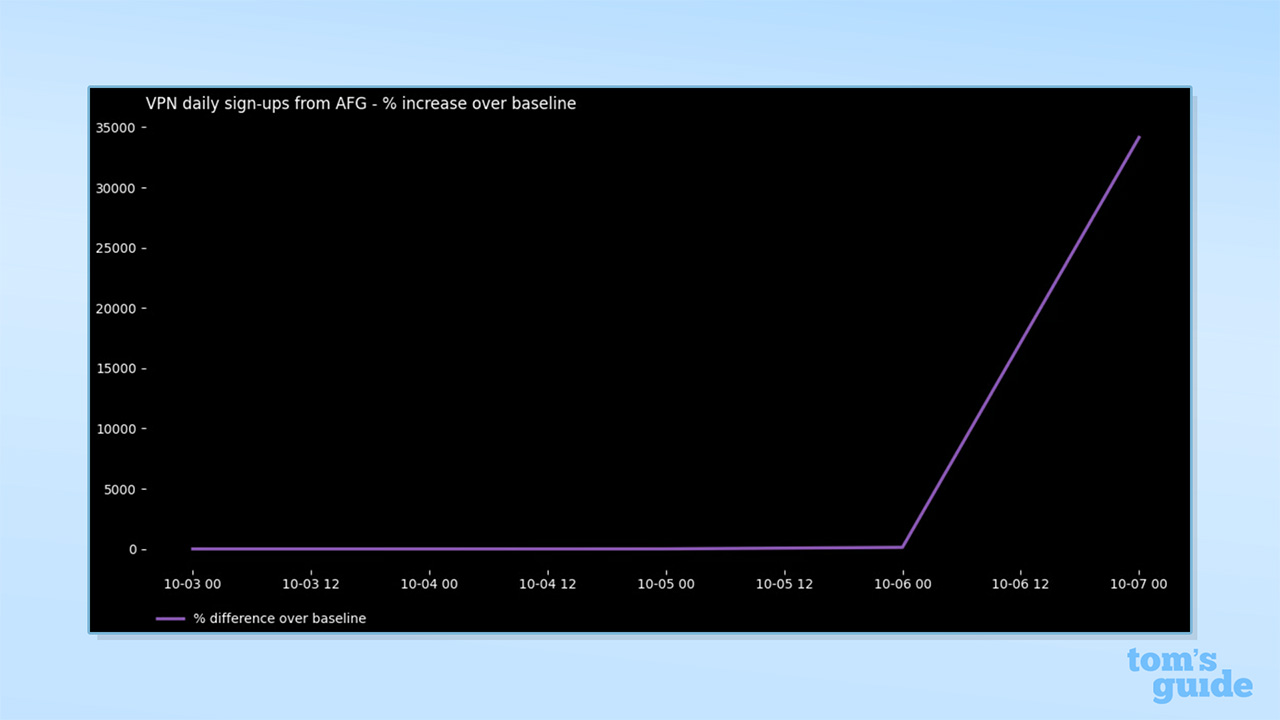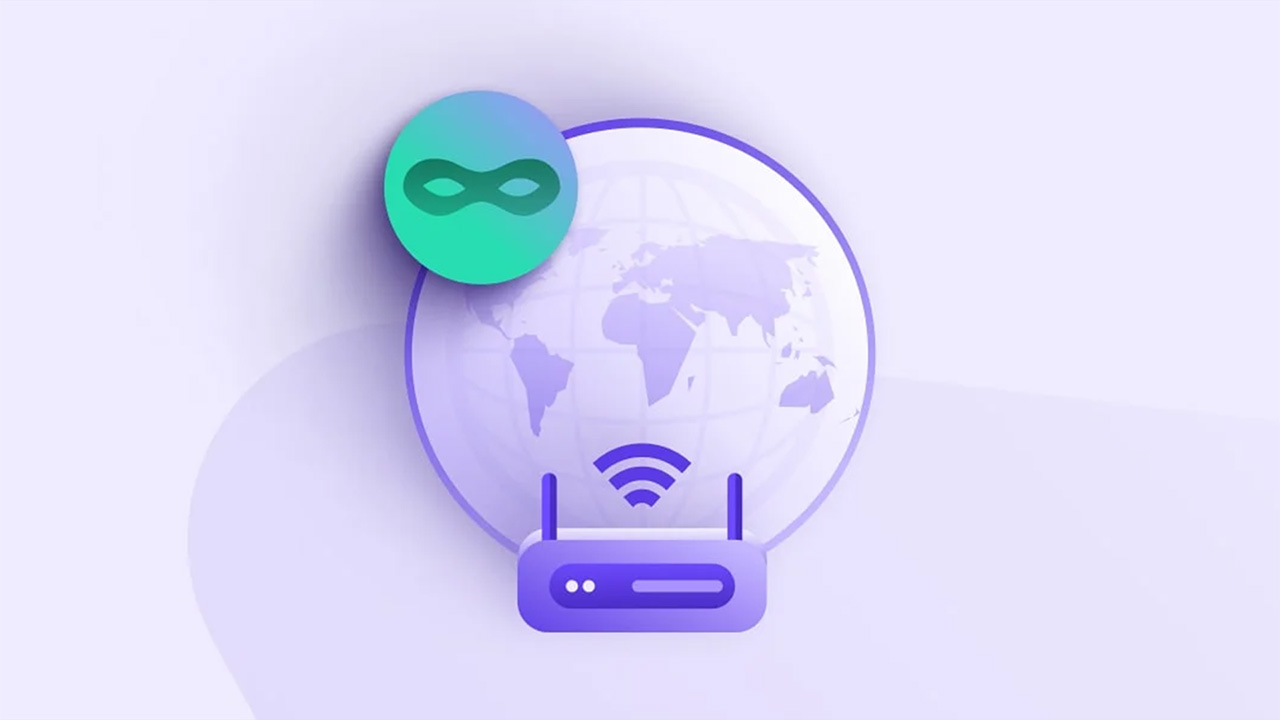Afghanistan's social media ban sees VPN usage soar by 35,000%
The move followed a total internet shutdown

Here at Tom’s Guide our expert editors are committed to bringing you the best news, reviews and guides to help you stay informed and ahead of the curve!
You are now subscribed
Your newsletter sign-up was successful
Want to add more newsletters?
Join the club
Get full access to premium articles, exclusive features and a growing list of member rewards.
VPN usage in Afghanistan has spiked significantly following government-imposed restrictions on social media.
One of the best VPNs, Proton VPN, indicated a usage increase of 35,000% over the baseline, citing data recorded by the Proton VPN Observatory.
This rise took place between October 6-7, 2025, approximately a week after a total internet shutdown occurred – something VPNs could not help bypass.
While there is no indication that the ban has been lifted, it is another blatant example of internet censorship and moves to restrict the online freedoms of millions of people.

Facebook, Instagram, and X blocked
It appears that Facebook, Instagram, and X have all been restricted in Afghanistan. According to BBC reports, a Taliban government source said "some sort of controls have been applied to restrict certain types of content on platforms such as Facebook, Instagram, and X."
The source added that the whole country would be impacted, and there was a hope that another full internet shutdown wouldn't be needed.
NetBlocks reported that Snapchat was also affected, and it said social media was "restricted on multiple providers."
⚠️ Confirmed: Metrics show social media platforms Instagram, Facebook and Snapchat are now restricted on multiple providers in #Afghanistan; the incident follows last week's telecoms blackout and is the latest in a series of internet censorship measures imposed by the Taliban pic.twitter.com/r8uJzyhG8QOctober 8, 2025
Afghanistan suffered a total internet shutdown between September 29 and October 1, 2025. The government cited "preventing immoral acts" as the reason for the shutdown.
Proton VPN tweeted that "access has been cut off" and its VPN tools were unable to help bypass censorship. It said, "We stand against acts like this and believe that both privacy & freedom of speech are human rights."
David Peterson, Proton VPN General Manager, commented further. "During most internet restriction events, Proton VPN users are still able to tunnel through to the outside world. But not when the internet is totally unplugged," he said in a tweet.
Despite internet access returning to Afghanistan on October 1, NetBlocks reported that some regions were experiencing shutdowns up until October 8.
Fighting against internet censorship
In the first half of 2025, 24 cases of internet restrictions were seen. It is an all too familiar sight, and VPNs are a vital tool for fighting back.
VPNs can help keep people online when it comes to social media, websites, and internet service provider blocks.
Connecting to a VPN server in a country with no internet restrictions is the easiest way to stay online.
A number of leading VPNs have dedicated protocols for evading censorship; these are commonly referred to as obfuscating protocols. NordVPN's NordWhisper and Proton VPN's Stealth are just two examples.
Proton VPN also boasts dedicated anti-censorship features. Guest mode means no account is needed to access its VPN, and Secure Core routes your internet traffic through two servers rather than one.
You can disguise the Proton VPN app on your phone, and it offers one of the best free VPNs around – Proton VPN Free.

But even VPNs can't combat total internet shutdowns. We have seen these take place in Iran and Russia, as well as Afghanistan, and these incidents must not become the norm.
A VPN day of action was marked on September 25, 2025, as campaigners called for an end to VPN targeting and urged lawmakers not to impose bans on the privacy tools.
Campaigns like this, opposing censorship at every opportunity, while fighting for a free and open internet, are a must in order to try and stop the wave of online restrictions.
We test and review VPN services in the context of legal recreational uses. For example: 1. Accessing a service from another country (subject to the terms and conditions of that service). 2. Protecting your online security and strengthening your online privacy when abroad. We do not support or condone the illegal or malicious use of VPN services. Consuming pirated content that is paid-for is neither endorsed nor approved by Future Publishing.

George is a Staff Writer at Tom's Guide, covering VPN, privacy, and cybersecurity news. He is especially interested in digital rights and censorship, and its interplay with politics. Outside of work, George is passionate about music, Star Wars, and Karate.
You must confirm your public display name before commenting
Please logout and then login again, you will then be prompted to enter your display name.
 Club Benefits
Club Benefits










